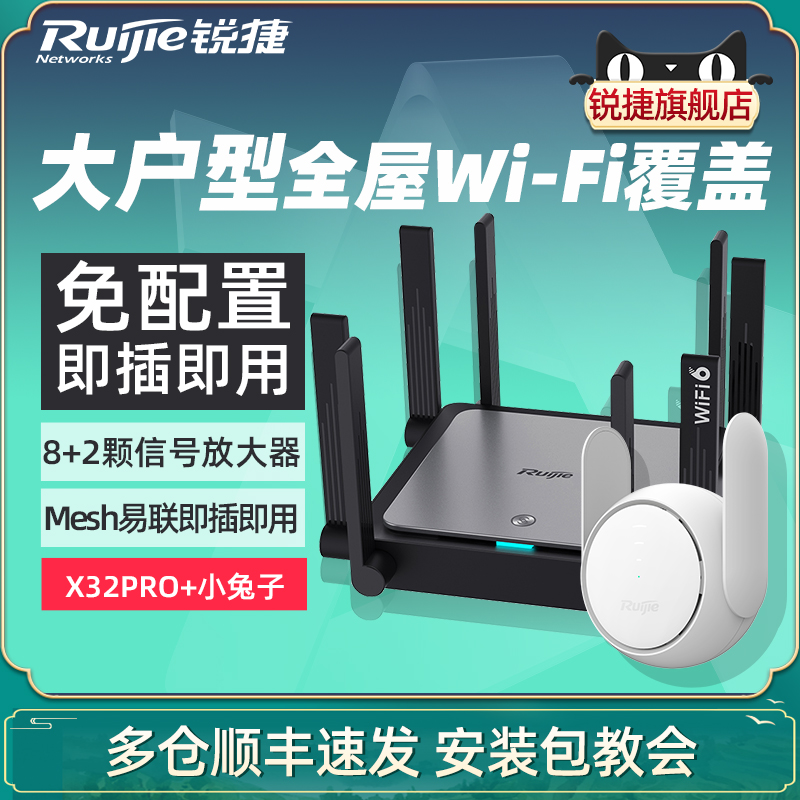路由器市场趋势分析:未来路由器将如何发展?
观想沮
2024-10-12 10:00:51
0次
路由器市场趋势分析:未来路由器将如何发展?
随着科技的飞速发展和人们对于网络需求的日益增长,路由器市场正经历着前所未有的变革。未来,路由器的发展将受到诸多因素的影响,包括技术进步、消费者需求、市场竞争等。本文将对未来路由器的市场趋势进行分析,探讨其发展方向。
一、技术进步推动路由器创新
随着5G、物联网、人工智能等技术的不断发展,路由器将逐渐向智能化、高速化、安全化方向发展。5G技术的普及将进一步提高网络速度,为路由器提供更广阔的应用场景。物联网的兴起将使路由器成为家庭、企业等场景下智能设备连接的枢纽,进一步扩大路由器的市场需求。
二、消费者需求变化驱动产品升级
随着消费者对网络体验的要求不断提高,他们对路由器的性能、功能、外观设计等方面都有着更高的要求。未来,路由器将更加注重用户体验,不断提升性能,增加更多智能化功能,以满足消费者的需求。同时,路由器的外观设计也将更加注重美学和实用性,使其成为家居装饰的一部分。
三、市场竞争促使产品差异化
随着路由器市场的竞争日益激烈,各厂商为了在市场中脱颖而出,将不断推出具有差异化的产品。这些产品将在性能、功能、价格、外观设计等方面进行差异化定位,以满足不同消费者的需求。同时,各厂商还将加强在服务、品牌等方面的竞争,以提升自身的市场地位。
四、未来路由器的发展方向
1. 智能化:未来路由器将更加注重智能化发展,通过人工智能、机器学习等技术,实现自动优化网络设置、智能识别设备、远程控制等功能,提高用户体验。
2. 高速化:随着网络技术的不断发展,未来路由器的传输速度将不断提高,以满足用户对高速网络的需求。
3. 安全化:网络安全问题日益严重,未来路由器将更加注重安全性能的提升,通过加强加密技术、防范网络攻击等手段,保障用户的网络安全。
4. 集成化:未来路由器将更加注重与其他智能设备的集成,如智能家居、智能安防等,实现设备间的互联互通,为用户提供更加便捷的生活体验。
五、总结
综上所述,未来路由器市场将受到技术进步、消费者需求、市场竞争等多方面因素的影响,其发展方向将朝着智能化、高速化、安全化、集成化的方向进行。各厂商应抓住市场机遇,不断创新产品,以满足消费者的需求,提升自身的市场竞争力。同时,政府和相关机构也应加强对网络技术的研发和推广,为路由器市场的发展提供更好的政策支持和市场环境。
Router Market Trend Analysis: How Will the Future of Routers Develop?
With the rapid development of technology and the increasing demand for networks, the router market is experiencing unprecedented changes. The future development of routers will be influenced by many factors, including technological advancements, consumer demand, and market competition. This article analyzes the market trends of future routers and explores their development direction. Firstly, technological advancements drive router innovation. With the continuous development of 5G, the Internet of Things, artificial intelligence, and other technologies, routers will gradually evolve towards intelligence, high speed, and security. The popularity of 5G will further improve network speed, providing a broader application scenario for routers. The rise of the Internet of Things will make routers the hub of smart device connectivity in home and enterprise scenarios, further expanding the market demand for routers. Secondly, changes in consumer demand drive product upgrades. With consumers' increasing demands for network experience, they have higher requirements for router performance, functionality, appearance, and other aspects. In the future, routers will focus more on user experience, continuously improve performance, and add more intelligent functions to meet consumer needs. At the same time, the appearance design of routers will also focus on aesthetics and practicality, making it a part of home decoration. Thirdly, market competition promotes product differentiation. With the increasingly fierce competition in the router market, manufacturers will continue to launch differentiated products to distinguish themselves in the market. These products will be positioned differently in terms of performance, functionality, price, appearance design, and other aspects to meet the needs of different consumers. At the same time, manufacturers will also strengthen competition in services, brands, and other aspects to enhance their market position. Fourthly, the development direction of future routers is intelligence, high speed, security, and integration. Intelligent routers will use artificial intelligence and machine learning technologies to achieve automatic optimization of network settings, intelligent device recognition, remote control, and other functions to improve user experience. High-speed routers will continue to improve transmission speed to meet users' demand for high-speed networks. Security routers will focus on improving security performance through strengthened encryption techniques and network attack prevention to ensure network security for users. Integrated routers will prioritize integration with other smart devices such as smart homes and smart security to achieve interconnection between devices and provide users with a more convenient living experience. In summary, the future相关内容
热门资讯
路由器的进化史:从有线到无线,...
路由器进化史:从有线到无线,再到智能路由器,科技发展推动了路由器的变革。这种变化为人们提供更便捷、高...
路由器市场大解析:2023年热...
路由器市场解析:2023年热门型号比较,竞争激烈。各大品牌如华为、小米、TP-Link和苹果推出各有...
"家用与商用路由器的区别及选择...
本文介绍了家用与商用路由器的区别,并提供了选择建议。家用路由器适合家庭用户,需关注稳定性和易用性;商...
路由器故障排查与解决:常见问题...
本文介绍了路由器常见问题及处理方法,包括无法联网、信号弱、无法登录管理界面、掉线及设备连接限制等问题...
"路由器技术解析:如何提升网络...
本文介绍了提升网络速度与稳定性的技术手段,包括硬件升级、信道优化、智能QoS等措施,通过增强天线信号...
路由器技术发展趋势与未来展望
摘要:
本文探讨了路由器技术的发展趋势与未来展望。随着硬件升级、软件定义网络和网络功能虚拟化、安全...
高速稳定:路由器技术解析与性能...
摘要:
本文详细解析了路由器技术,包括硬件和软件技术,并对不同路由器的传输速度、稳定性和信号性能进...
路由器使用技巧大放送:提升网络...
本文分享了提升路由器网络速度与稳定性的技巧,包括定期重启路由器、调整信道与频段、优化设备位置、使用更...
全面解析不同类型路由器的优缺点
本文解析了不同类型路由器的优缺点,包括家庭路由器、企业级路由器和无线路由器。每种路由器都有其特定应用...
"深度解析:路由器的关键参数及...
摘要:
本文深入解析了路由器的关键参数和功能,包括无线标准、频段、处理器和内存、端口数量和类型等,...



